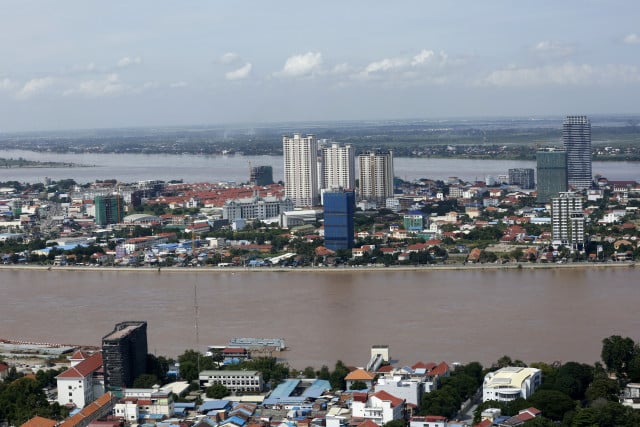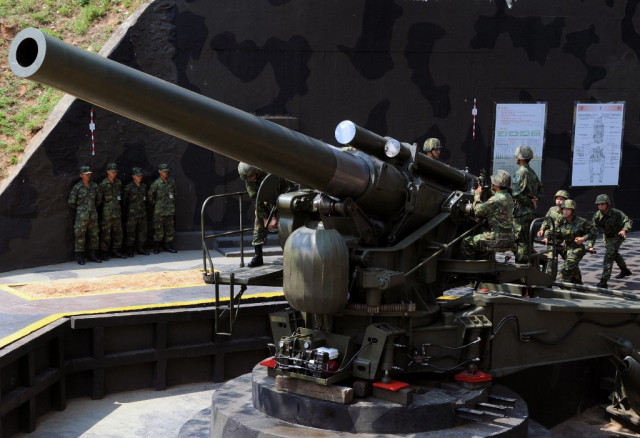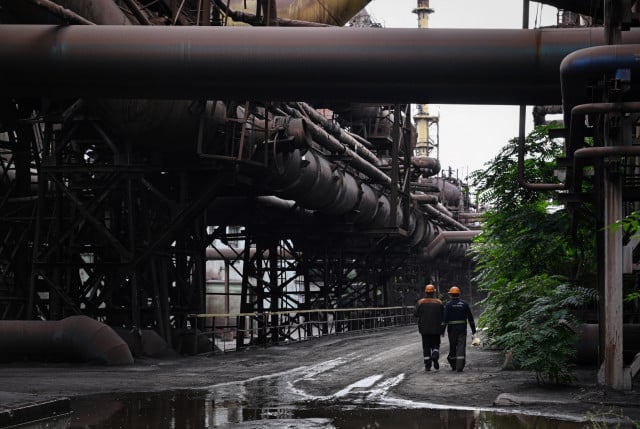Foreign Affairs Ministry Further Denies North Korean Businesses Operating in Cambodia

- By Meng Seavmey
- February 28, 2022 8:04 PM
Cambodia’s murky history of bilateral relations with North Korea have once again come under the spotlight, but the government denies fresh allegations of having violated UN sanctions
PHNOM PENH--The Ministry of Foreign Affairs on Feb. 22 issued a statement further denying allegations that North Korean businesses were freely operating in Cambodia. The statement included an excerpt from an email which the Ministry of Foreign Affairs said came from the United Nations Security Council (UNSC).
Cambodianess could not verify whether the email was genuine, but according to the Foreign Affairs Ministry an unnamed individual, purportedly a representative of the UNSC panel of experts analyzing the prevalence of North Korean businesses abroad and the efficacy of sanctions applied to North Korea, wrote to the Foreign Affairs Ministry further denying reports circulated by NK News.
On Feb. 15, NK News published a story claiming that a North Korean spy was operating hotels, casinos, travel agencies, restaurants and bars up until at least mid-2020. Ethan Jewell, the author of the NK News story, suggested he had spoken to experts from the UNSC’s panel and that they had provided him with a draft copy of a forthcoming report on sanctions against North Korea.
At the center of the NK News story was C.H. World Travel, a travel agent based in Phnom Penh, which Jewell reported was run by a North Korean spy Kim Chol Sak, but that the owner was going by the name of Sok Kha.
Neither C.H. World Travel nor Sok Kha could be reached for comment, but the business appears to be registered in Cambodia, according to the Ministry of Commerce’s records.
According to Jewell’s reporting, Kim was operating on a fake diplomatic passport, which Jewell suggested hinted at a level of involvement from the Cambodian government. He also claimed that the draft UNSC panel of experts’ report had connected Kim, the purported North Korean spy, to infamous Cambodian timber tycoon Try Pheap.
In response, the Ministry of Foreign Affairs Spokesperson, Chum Sounry, on Feb. 17, denied the veracity of the NK News reporting, stating that the information lacked any basis and was an accusation against Cambodia.
However, the Ministry of Foreign Affairs—in their Feb. 22 statement—said that the UNSC had denied leaking the report.
“I would like to stress that no-one on the Panel has spoken to the media about the contents of our report; neither have we shared any part of it with the media,” the UNSC purportedly said in the email to the Ministry of Foreign Affairs.
Any leak, the statement continued, was done without authorization.
“However, I wish to assure you that the content of the report reflects precisely what Cambodian authorities have told the Panel about Mr. Kim Chol Sok and his activities, as well as the Cambodian investigation and actions taken, in sober and accurate terms,” the unnamed UNSC source reportedly told the Ministry of Foreign Affairs.
According to the Foreign Affairs Ministry, the UNSC ensured that they did not make such unfounded claims in their own report, but could not comment on any of the other claims made in the NK News report.
On Feb. 24, Astrid Sehl, press counsellor at the Permanent Mission of Norway to the UN and the Chair of the DPRK sanctions committee, confirmed that the final report of the panel of experts to the 1718 Committee is a confidential document until it is published by the UNSC.
As specified in Resolution 2569 (2021), she added, the report is to be submitted to the UNSC no later than Feb. 15, and if the UNSC decides to publish it, it will then undergo translation before it is published.
North Korean-Cambodian relations date back to 1961, when the late King Norodom Sihanouk and Kim Il-sung met in Belgrade for the Non-Aligned Meeting, with the bilateral relations surviving until UNTAC mission of the 1990s. Sihanouk famously hired North Korean soldiers as bodyguards, enjoyed visits to Pyongyang and even received education in North Korea, allowing for North Korean businesses to flourish in Cambodia for decades.
Relations soured somewhat in the late 2010s, when current North Korean dictator Kim Jong-un had his half-brother Kim Jong-nam assassinated in Malaysia, but reports from 2017 suggested that the assassins—who believed they were taking part in a reality TV prank show rather than an orchestrated killing—had performed practice runs in Cambodia.
Following this, North Korean diplomatic visits were rejected by Cambodia and Cambodia started shutting down North Korean businesses in Cambodia following UNSC Resolution 2321, which passed in 2016, applying sanctions to North Korea in response to a nuclear test on Sept. 9, 2016.
However, the process accelerated in March 2018, when the Cambodian government established an inter-ministerial working group to further root out remaining North Korean businesses in a bid to further comply with UN sanctions against North Korea by ensuring that Kim Jong-un’s dictatorship was unable to receive foreign funding.
In February 2019, Chheang Vannarith, president of Cambodian think-tank Asian Vision Institute, suggested that the imposition of sanctions would harm Cambodia’s bilateral relations with North Korea, which he said were “miniscule.” Vannarith then went on to say that Cambodia’s approach to North Korea would be “heavily influenced by China’s strategic calculation and ‘tacit approval.’”
The Permanent Mission of Cambodia to the UN filed a report to the UNSC’s committee in January 2020 where it was reported that Cambodia’s Ministry of Commerce had identified 11 North Korean businesses as of June 12, 2019 and had issued a prakas to deregister these businesses. The report added that eight North Korean restaurants were shut down by the Ministry of Tourism in December 2019—the same time Cambodian officials shut down the Angkor Panorama Museum in Siem Reap Province.
But an investigation conducted between Feb. 2, 2019 and Feb. 7, 2020 by the Institute for Science and International Security found that 62 countries, including Cambodia, had violated UN sanctions. Cambodia was among 26 countries that had reportedly violated the sanctions through allowing North Korean business and financial operations within their territory, but Cambodia was also accused of hosting North Korean-operated restaurants and having business ties with North Korean entities blacklisted by UN sanctions.
Again, the Cambodian government denied the findings of the report, but whether the UNSC’s as-of-yet unpublished report will be made public or whether it too will suggest that Cambodia has violated UN sanctions remains to be seen.
Additional reporting by Gerald Flynn















